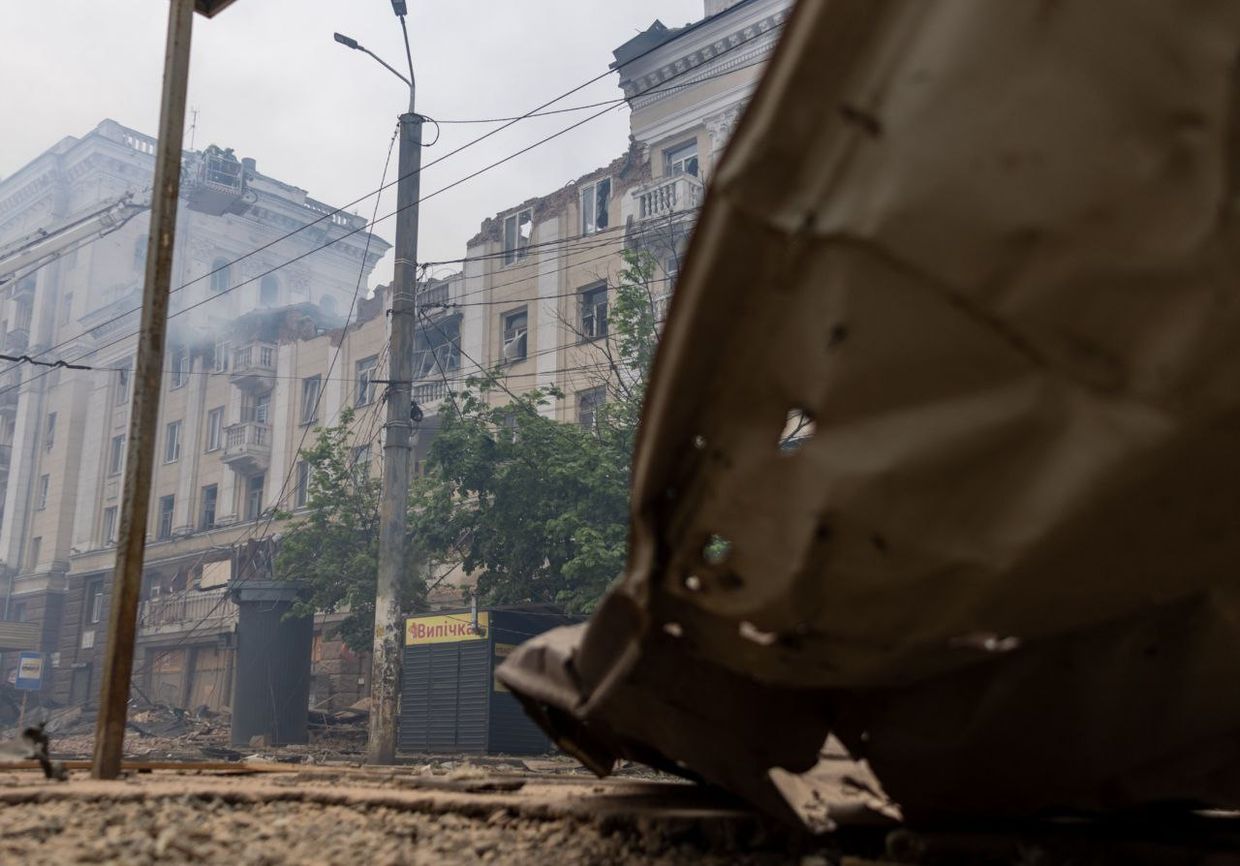Daily Flyer - April 20, 2024
A voice of Ukraine to the West

Rescue operations in Dnipro concluded, three dead and 24 injured following Russian missile strike.

The search and rescue operations at the sites of a Russian missile attack on Dnipro have concluded, with the attack reportedly resulting in the deaths of three people, including two women and a man, and injuries to 24 others. The Russian missile strike on April 19 targeted downtown Dnipro, causing significant damage, partially destroying a five-story building, and damaging the railway station. The authorities reported that first responders rescued 12 people during their operations.
Apart from Dnipro, Russian attacks also struck the Synelnykove district and the city of Kryvyi Rih in Dnipropetrovsk Oblast, damaging homes and infrastructure. The State Emergency Service reported that a total of eight people, including an eight-year-old boy and a 14-year-old girl, were killed, and 34 others were injured in Russian attacks on the region on April 19.
The increasing frequency and intensity of Russian strikes have led to a rise in civilian casualties, highlighting Ukraine's pressing need for more advanced air defense systems to protect its citizens and infrastructure. Following these attacks, Ukrainian President Volodymyr Zelensky emphasized the urgent need for concrete decisions from Ukraine's international partners regarding air defense systems, rather than just ongoing discussions. This call for action underscores the critical security challenges Ukraine faces due to the continuing Russian aggression.
Zelenskyy slams Allies for double standards: "They forgot that Israel isn't part of NATO"
President Volodymyr Zelenskyy has expressed frustration over what he perceives as double standards among NATO members regarding the defense of Ukraine and Israel from air attacks. He advocates for NATO allies to take a more proactive role in shooting down Russian missiles targeting Ukraine.
In a recent interview with Brazilian media, Zelenskyy highlighted the inconsistency in NATO's approach. He noted that when Ukraine asked NATO to "close the sky" and protect Ukraine from Russian airstrikes, NATO members declined, citing concerns about escalating into a direct conflict with Russia since Ukraine is not a NATO member. However, Zelenskyy pointed out that the same argument did not apply when allies protected Israel from Iranian attacks despite Israel not being a NATO country.
The president underscored that when defending Israel, allies demonstrated the technological capacity to intercept and shoot down hundreds of Iranian missiles and UAVs, indicating they had the capability but chose not to use it in Ukraine's case. He further mentioned that Russian aircraft and missiles had crossed into Polish and Romanian airspace without provoking a significant reaction, suggesting a lack of consistency in NATO's responses.
Zelenskyy proposed that allied aircraft could shoot down Russian missiles targeting Ukraine while in the airspace of their respective countries, given that these missiles could potentially threaten neighboring nations. He argued that this would not only protect Ukraine but also serve as a deterrent to Russia's aggressive actions.
Zelenskyy concluded by stating that such a move would demonstrate solidarity among NATO allies, reinforcing a unified stance against Russian aggression and eliminating double standards. He indicated that he would be grateful and supportive of any NATO country that took these proactive measures to defend Ukraine.
Russian forces took out 5 out of 31 US Abrams tanks in Ukraine in 2 months
A recent report by The New York Times indicates that five M1 Abrams main battle tanks, out of the 31 sent to Ukraine by the United States in the fall of 2023, have been destroyed by Russian forces. This information, which came from a senior US official, underscores the significant threat that modern warfare poses to heavily armored vehicles.
The NYT referenced Colonel Markus Reisner, an Austrian military trainer with close ties to weapon use analysis in the Ukraine conflict, who noted that at least three other Abrams tanks have suffered substantial damage since they were deployed to the front lines earlier in 2024. This comes in the context of a broader perspective on tank losses during the conflict, where Oryx, a military analysis site, reports that 796 Ukrainian battle tanks have been destroyed or captured since the start of the full-scale invasion, while Russia has lost about 2,900 tanks.
The report highlights that drones are becoming a significant threat to tanks, specifically those used by the United States and Ukraine. First-person view drones (FPVs) equipped with cameras that stream real-time images allow controllers to target tanks with remarkable accuracy, hitting them in their most vulnerable spots, typically at the top or the rear engine block where armor is thinner. This advanced drone technology has transformed modern warfare and presents new challenges for traditional battle equipment like tanks.
Colonel Reisner mentioned that these FPV drones have also been used to "finish off" tanks already damaged by mines or anti-tank missiles, preventing them from being retrieved and repaired. This tactical approach has made tank warfare more complex and dangerous, demonstrating how drone technology can rapidly shift the dynamics of the battlefield.
US Congress supported aid to Ukraine
The US House of Representatives approved a bill to provide aid to Ukraine.
A recent vote in the lower house of the US Congress saw 311 members voting in favor of a project, with 112 opposing it. The vote was greeted with cheers from congressmen and involved members of the House waving Ukrainian flags, indicating support for Ukraine amid ongoing conflict and tensions.
The bill will now be sent to the Senate for consideration, where it will be treated as an amendment to the US international aid Senate bill HR.815, passed earlier in February. This streamlined approach aims to facilitate the approval process in the Senate.
US President Joe Biden has committed to signing the adopted project into law, suggesting it will receive presidential endorsement once it completes its journey through Congress and the Senate. This development signifies continued US support for international aid and could have implications for assistance to Ukraine and other international partners.

